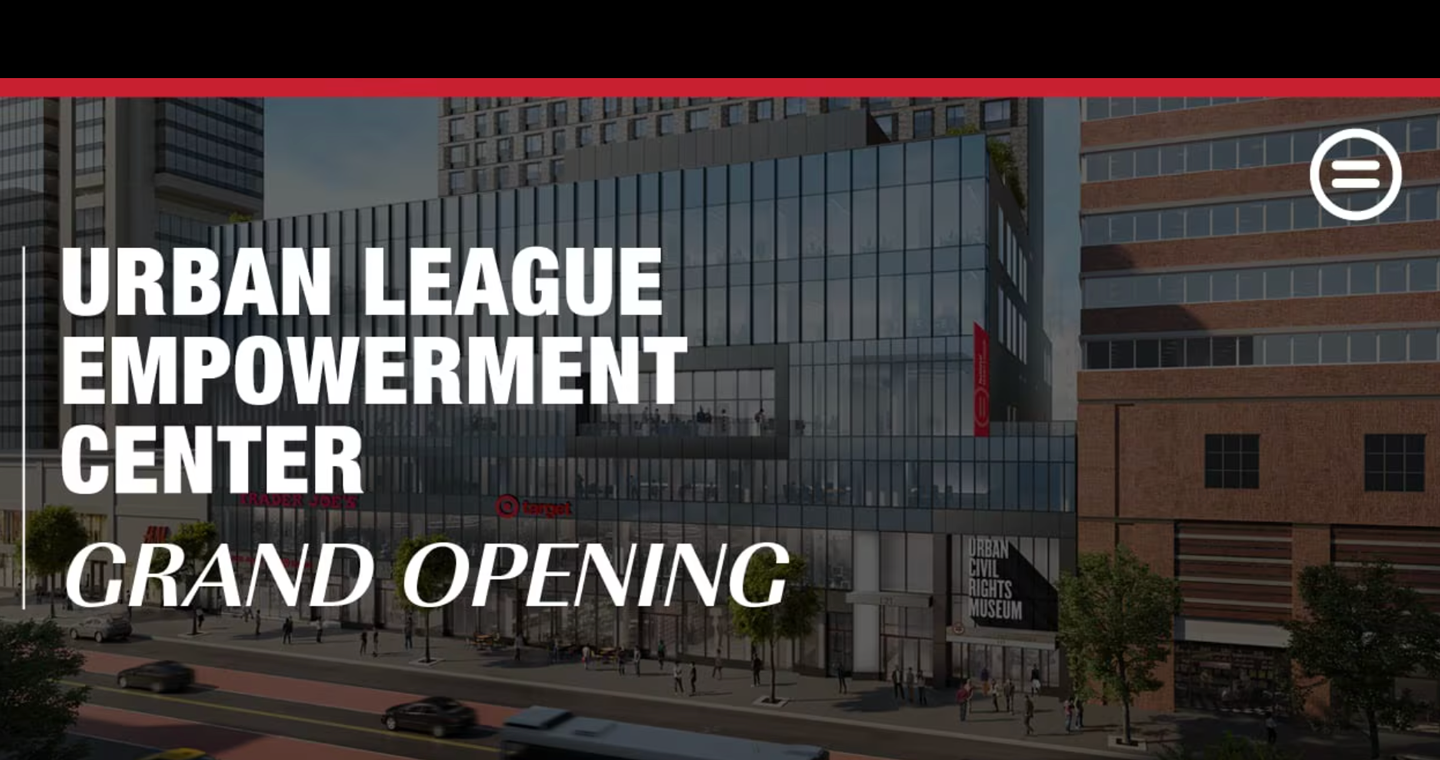National Urban League Dedicates Empowerment Center in Harlem

NATIONAL URBAN LEAGUE DEDICATES EMPOWERMENT CENTER IN HARLEM: A LANDMARK FOR INCLUSIVE DEVELOPMENT AND CIVIL RIGHTS
HARLEM, NEW YORK CITY (November 12, 2025) -- Surrounded by city and state elected officials, corporate and financial partners, and Urban League leaders from across the nation, National Urban League President and CEO Marc H. Morial today officially dedicated the Urban League Empowerment Center, a transformative development that embodies the principles of equity, opportunity, and community investment.
“The Urban League Empowerment Center is a model of what inclusive development should look like,” said Morial. “This is not development for development’s sake—it is development with purpose, and with passion. We have designed in poetry and executed in prose.”
Morial was joined at the dedication by Tim Murphy, Chair of the National Urban League’s Board of Trustees and Vice Chair of Mastercard; New York Gov. Kathy Hochul; David M. Solomon, Chairman and Chief Executive Officer of Goldman Sachs; National Action Network President Rev. Al Sharpton; New York City Mayor-Elect Zohran Mamdani; U.S. Senator Kirstin Gillibrand; Michelle Ebanks, President and CEO of The Apollo; New York City Council Member Yusef Salaam; and other state and city elected officials, community leaders, and representatives of corporate and financial partners. U.S. Sen. Chuck Schumer delivered recorded remarks.
The Empowerment Center features 170 units of affordable housing, reserved for families earning between 30% and 80% of the area median income, ensuring that Harlem remains a community where working families can thrive. Among its residents are young adults supported by The New York Foundling’s program for foster youth who have aged out of the system—a population too often left behind. By providing stable housing and access to services, the Center helps thse young people transition into adulthood with dignity and support.
Beyond housing, the Center includes retail and office space for minority-owned businesses and nonprofits, creating a vibrant ecosystem of entrepreneurship and service. The project is expected to generate over $300 million in economic activity, with a strong commitment to hiring local residents, women, and people of color. “We have created jobs, and we will create more,” Morial emphasized.
The significance of the Empowerment Center extends far beyond economics. It will house the Urban Civil Rights Museum in Harlem, set to open in 2026 during the U.S. 250th anniversary commemorations. This will be New York City’s first museum dedicated to the American civil rights movement, with a unique focus on struggles in Northern urban environments. Its mission: to interpret and share stories of justice and civil rights, offering immersive educational experiences that empower visitors to become agents of change.
The museum will feature:
-
A permanent interactive installation
-
Rotating exhibitions
-
Retail and café spaces
Visitors can join as founding supporters by visiting urbancivilrightsmuseum.org.
The Center also houses the Whitney M. Young Center for Leadership, alongside cultural institutions preserving Harlem’s artistic legacy and nurturing the next generation of creators and leaders, including the Studio Museum in Harlem, Virginia Union University, and the United Negro College Fund. Soon, they will be joined by 100 Black Men of New York and Jazzmobile.
Additionally, the National Urban League Conference Center, where today’s dedication took place, will serve as a hub for dialogue and innovation. “This is where ideas will be born, where movements will be nurtured, and where the future of equity will be shaped,” Morial said. “It is a space designed not just for meetings, but for momentum.”
In today’s political climate—where civil rights protections are being rolled back and programs promoting diversity, equity, and inclusion are under attack—the Empowerment Center stands as a beacon. “It is a declaration that we will not be erased, that our history matters, and that our communities deserve investment—not neglect,” Morial affirmed.
“The National Urban League has always been a bridge—between aspiration and achievement, between policy and people,” he said. "This Empowerment Center strengthens that bridge, connecting Harlem’s storied past to its promising future, linking our national mission to local impact, and uniting generations of struggle with generations of success.”

